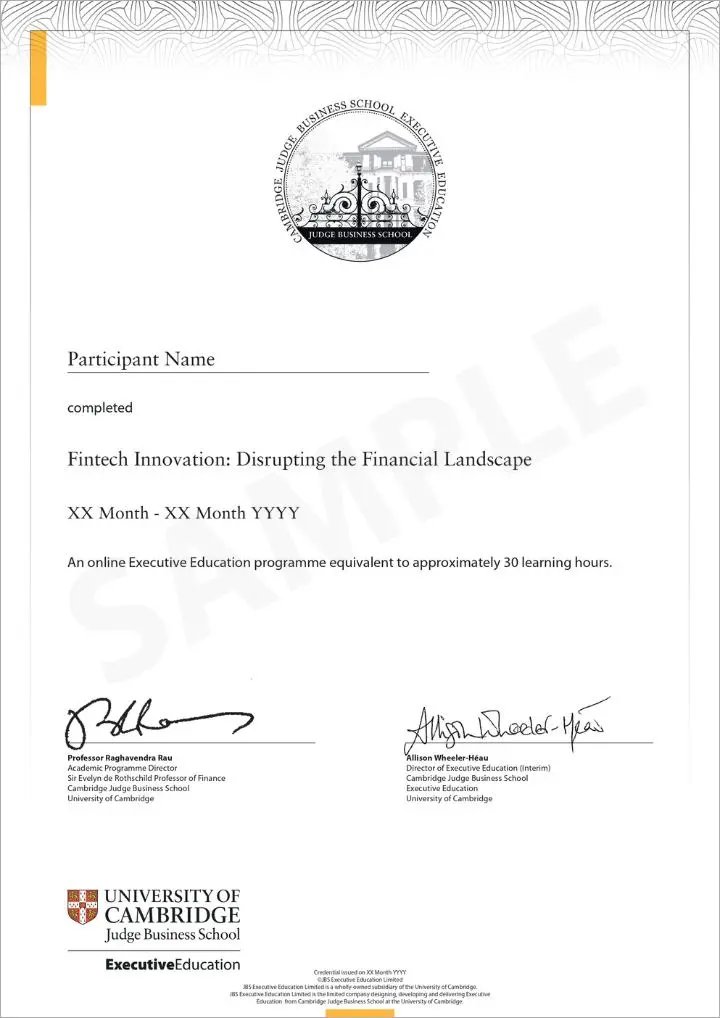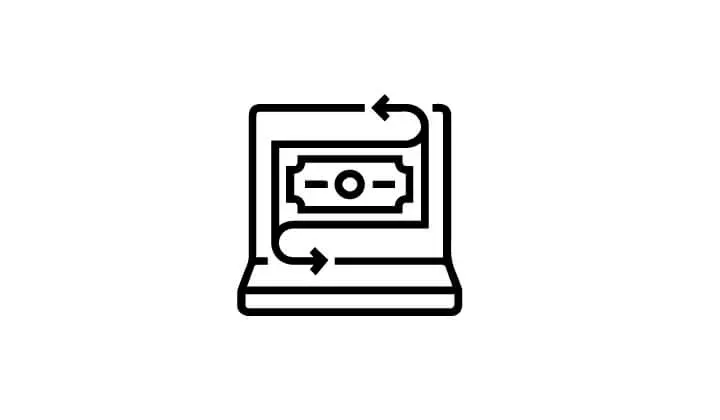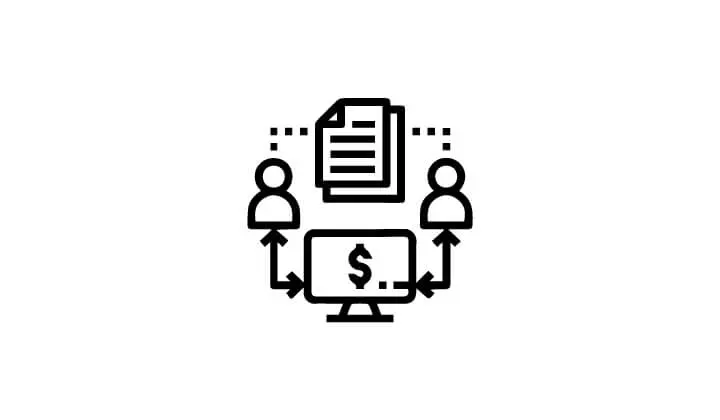FinTech Innovation: Disrupting the Financial Landscape
Real-world applications of Analytics, AI and blockchain for financial services
Key takeaways
This programme delivers value by providing a broad view of FinTech and how technology is influencing the ways data is used, misused, leveraged and shared by financial intermediaries. Throughout this six-week programme, you will:
Discover how digitisation is evolving the financial sector.
Learn how technologies like AI, data analytics and blockchain can help improve financial services and enhance revenue and profits.
Analyse how various financial technologies are being used to address information problems in the financial services industry.
Syllabus
Participants should expect to devote 4–6 hours per week to the programme, including faculty lectures, activities and assigned readings.
*For more information on the syllabus, download the brochure.
Faculty

Sir Evelyn de Rothschild Professor of Finance, MBA (IIM Bangalore), MSc, PhD (INSEAD)
Professor Rau is the Sir Evelyn de Rothschild Professor of Finance at Cambridge Judge Business School and has also served as the president of the European Finance Association,...

Certificate
Upon successful completion of the programme, participants will be awarded a digital certificate of completion by Cambridge Judge Business School Executive Education.
Please note that this programme can be incorporated into the completion of the Cambridge General Management Certificate of Achievement (GMCA). It will be credited as an "in-person" two-day programme for the purpose of meeting the GMCA requirements. If you require more details on the GMCA and wish to speak to our advisers, please contact executive.education@jbs.cam.ac.uk.
Note: After successful completion of the online programme, your verified digital certificate will be emailed to you in the name you used when registering for the programme. All certificate images are for illustrative purposes only and may be subject to change at the discretion of Cambridge Judge Business School Executive Education.
FAQs
Didn't find what you were looking for? Write to us at learner.success@emeritus.org or Schedule a call with one of our Programme Advisers or call us at +44 203 479 4043 (UK) / +1 315 819 0707(US) / +65 3163 8580 (SG)
Early registrations are encouraged. Seats fill up quickly!
Flexible payment options available.
Starts On




